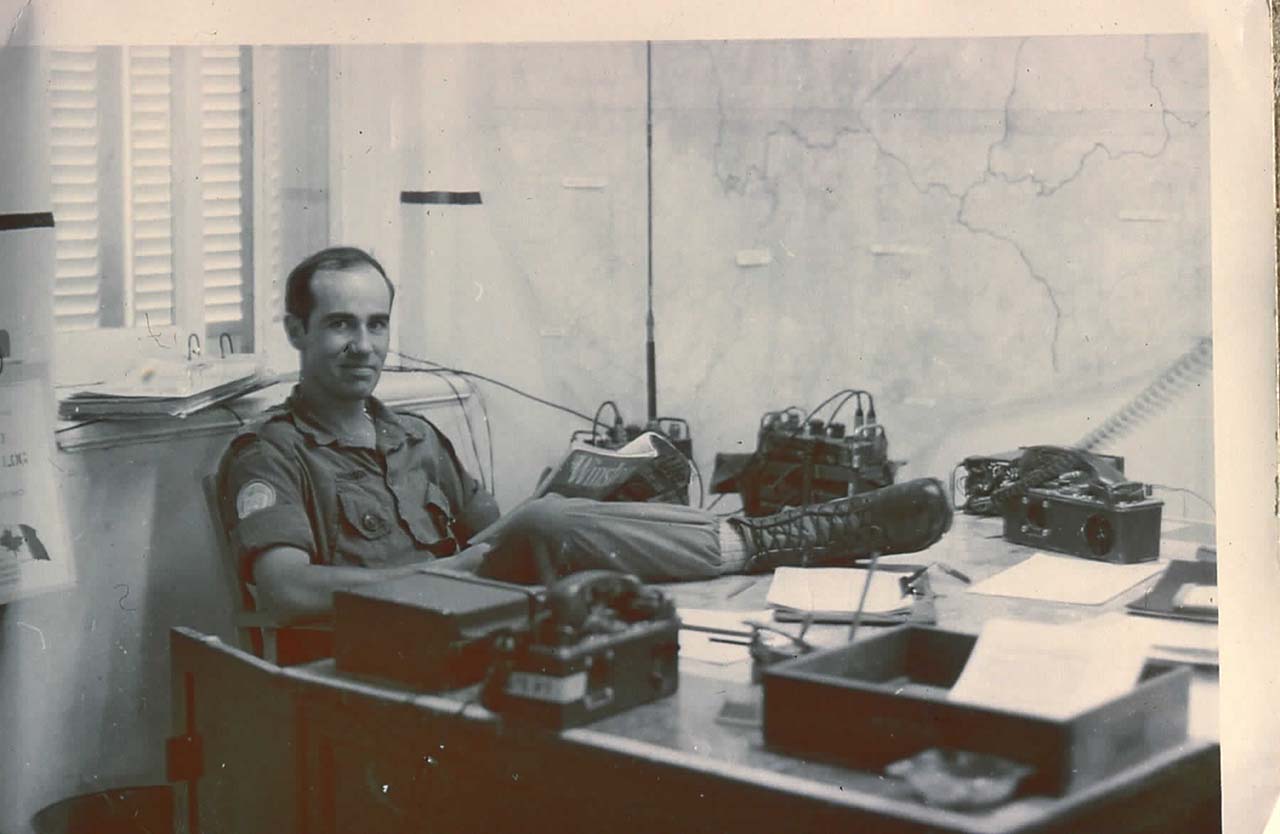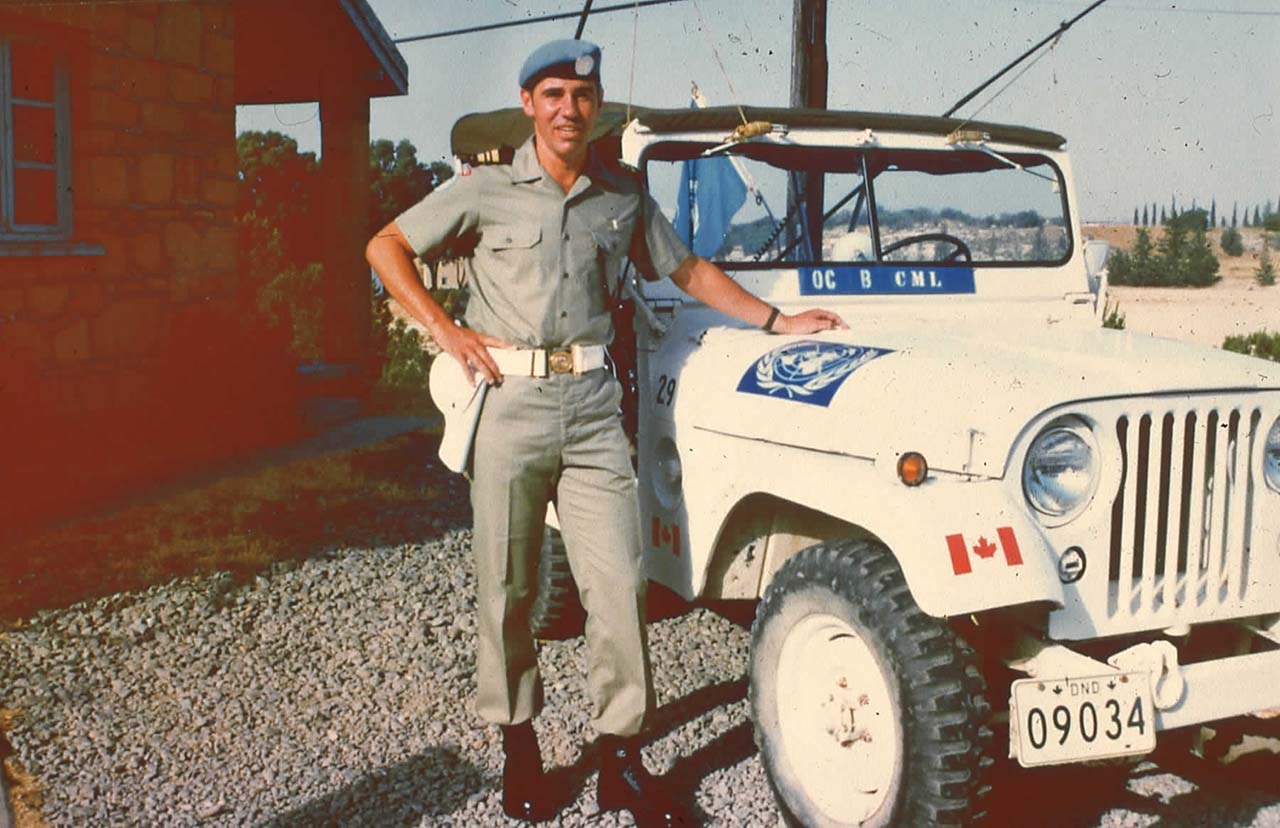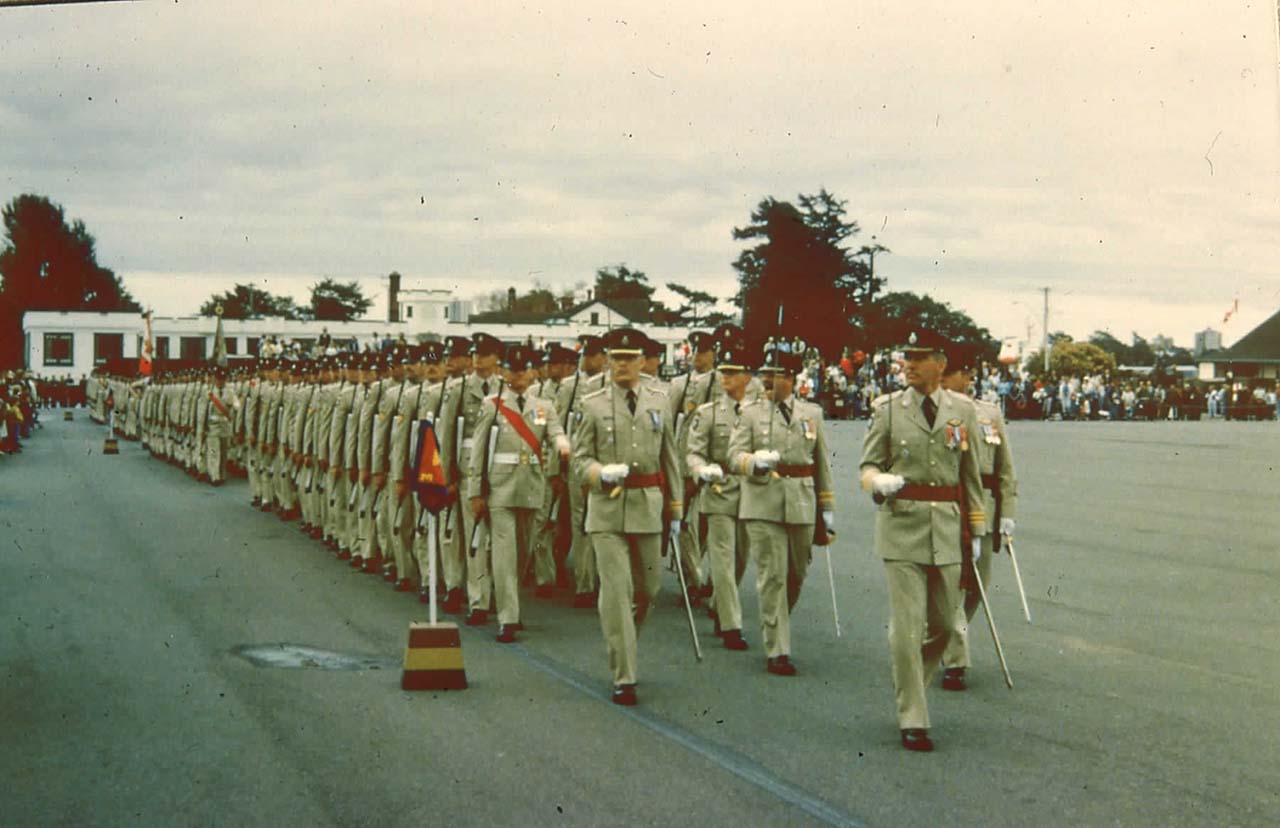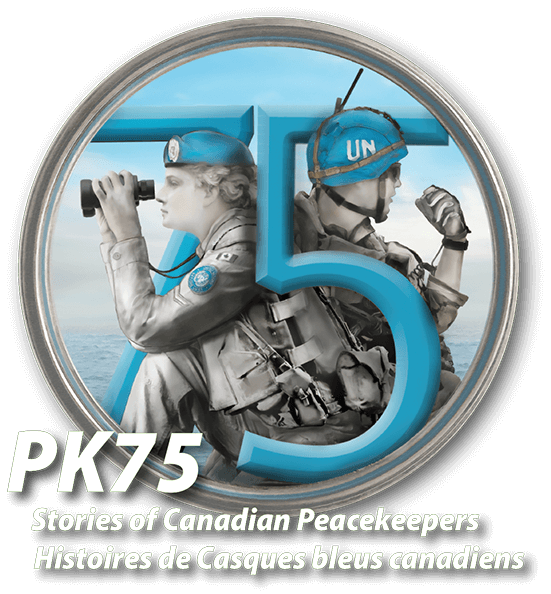

My experience spanning over 40 years in peacekeeping in field operations, diplomacy, academics, and capacity building has taught me that not only is peacekeeping complex and important, but that Canada is very good at it. I attribute Canada’s success to an amazing confluence of diverse groups of Canadians working very hard together to the common aim of international peace and security. This occasion is an opportunity to reflect on my experience with these groups of fine Canadians.
As a career army officer, my respect for Canadian soldiers of all ranks is, of course, unbounded. Their skill, courage and dedication form the bedrock upon which Canadian peacekeeping success is founded, and they are truly respected around the world.
My transition to the world of diplomacy was a surprise to me. I learned very quickly about the sense of urgency which is paramount in the minds and actions of our diplomats as they serve Ministers and the Prime Minister and speak for Canada internationally. They have great respect for their military colleagues and will do everything in their power to support them. Canada is incredibly well served by our diplomats, including the younger cohort who are so talented and dedicated, and who work often in difficult and dangerous situations.
I also had the privilege of working closely with Canadian civilian police peacekeepers and have been very impressed at how they approach the job. Our police peacekeepers represent Canada incredibly well and make a tremendous contribution wherever they are assigned, in such places as Afghanistan, Haiti, and East Timor. Experts from other government departments such as Correctional Services and Justice also deploy to post-conflict regions to assist in recovery and reform.
My experience in managing a fund to help build the capacity of developing countries to contribute meaningfully to international peacekeeping put me in close contact with Canada’s non-government organizations (NGOs). The dedication of the Canadian NGO community who tirelessly enhance Canadian efforts for international peace and security in conflict affected situations is truly impressive, as they work in areas such as the respect for human rights, building police capacity and justice reform, support for peace processes, and the promotion of meaningful roles for women.
Over the years of my involvement, the Canadian multi-disciplinary approach to peacekeeping was led by a succession of committed and dedicated Ministers and Prime Ministers and their political staffs. Ministers are very aware of the stakes involved for Canada on the world stage, and the possible risks involved in their decisions on peacekeeping deployments. Canada’s stellar reputation in peacekeeping would not be possible without the active support of our Ministers and politicians.
Underpinning the arduous and often dangerous work of Canadian peacekeepers is the tremendous support provided from home by families, our communities, and the Canadian public at large. This support, which has been rock-solid in my experience, is so very important to the morale of peacekeepers.
Finally, while mostly not Canadian nationals, I consider the UN international staff, with whom I worked closely over the years, as an important peacekeeping partner for Canada. They are highly professional and dedicated and consider Canada to be a good friend of peacekeeping. I am grateful for their commitment to the service of peace.
My peacekeeping career in its various dimensions has been a tremendously rewarding personal experience for me. I am proud of the many Canadian successes where I have been privileged to play a part, and I worry about areas where things might have gone better. I cherish the contacts I have made with Canadian and international colleagues and I mourn for colleagues who have been lost. Ever in my thoughts, even in my retirement, are the many local people I have met in conflict-affected situations such as in Cyprus, the Balkans and Sri Lanka who do not want war, but wish only to get on with their lives in peace and security for their families and communities. I am very grateful for the opportunity to have been a Canadian peacekeeper.
Biography
Tony Anderson’s peacekeeping experience spans some 40 years including Canadian Armed Forces (CAF) peacekeeping operations, independent international consulting and writing, and diplomatic service with what is now Global Affairs Canada (GAC).
Tony had three tours with the UN Force in Cyprus including during the 1974 Greek coup d’etat and subsequent Greek-Turkish war, and in 1988 as a battalion commander and UN Commander of Nicosia District. As the CAF exchange officer with GAC from 1990 to 1993, Tony led diplomatic support to Canadian contributions to: the first Gulf war and subsequent peacekeeping operations; UN operations in Cambodia and the Western Sahara; the European Union Monitoring Mission and the UN Protection Forces in the Balkans; and the missions in Somalia and Rwanda. At National Defence Headquarters between 1993 and 1999, Tony was the staff officer responsible for the provision of specialized equipment for CAF operations including the in-theatre upgrading of the armoured vehicle fleets in the Balkans, where he visited the contingent.
Upon retirement from the Canadian Forces in 1999, Tony consulted internationally on peacekeeping matters. He conducted a mission for the UN High Commissioner for Refugees to report on humanitarian operations in militarized and peacekeeping situations in Sri Lanka, and the Balkans. He joined the International Association of Peacekeeping Training Centres and contributed to its annual meetings in South Africa, Germany, Chile, Bangladesh and Japan. Tony completed several contracts in residence at the Pearson Peacekeeping Centre at the Cornwallis campus in Nova Scotia to deliver peacekeeping training and simulation exercises for organizations involved in international peace support operations, including NATO. He was employed as a peacekeeping expert by the UN Office of the High Commission for Human Rights to deliver training on the Laws of War as applied to peacekeeping.
In 2005, Tony was recruited into GAC to work on Canadian peacekeeping priorities. In this work, he led the Canadian delegations to the annual G8 Peacekeeping and Peacebuilding Experts Group and Africa Clearing House meetings. He coordinated the deployment of Canadian civilian police peacekeepers to Iraq, East Timor and Afghanistan, and coordinated the deployment of Canadian civilian officials to the CAF-led Provincial Reconstruction Team in Kandahar. In 2006–10 he managed Canada’s Global Peace Operations Program (GPOP), a fund to assist in building international military and civilian police peacekeeping capacity primarily in Africa, but also in Latin America and at the UN. In 2010, he coordinated the peacekeeping dimension of Canada’s G8 Presidency agenda visiting the capitals all G8 partners to coordinate collective G8 action on peacekeeping.
Tony’s last GAC assignment from 2011 to 2017 was to coordinate the government-wide implementation of the international Women Peace and Security agenda (WPS), which seeks to promote the protection of women in conflict situations, including from sexual violence, and to promote their meaningful participation in peace processes and peacekeeping operations.
Tony holds a BA from Queen’s University in Kingston and an MBA from the University of Ottawa. He was invested as a member of the Order of the British Empire by the Queen at Buckingham Palace in 1984 in recognition for his work on exchange at Headquarters 1st British Corps in Bielefeld, Germany. Tony is retired in Ottawa with Barbara, his wife of some 51 years, and also a retired senior civil servant. They enjoy visiting with their three children and five grandchildren in the Yukon, England, and Switzerland.

Tony Anderson on duty in the Cyprus Command Post, 1974.




